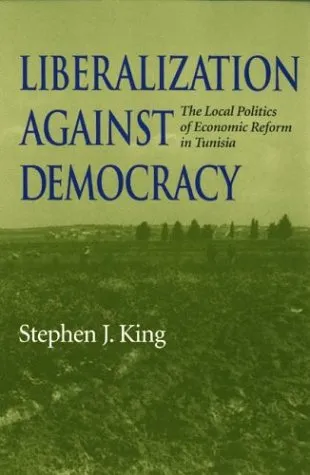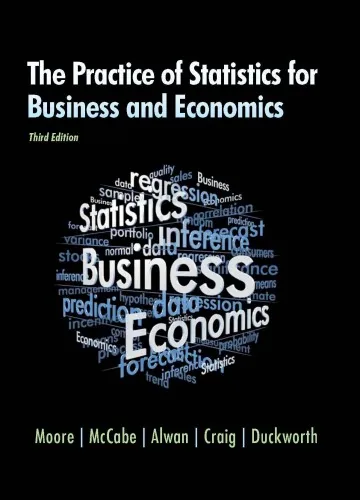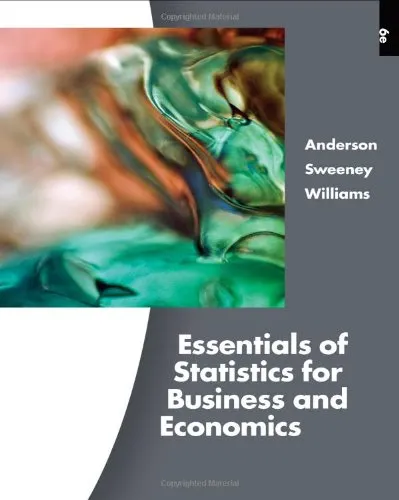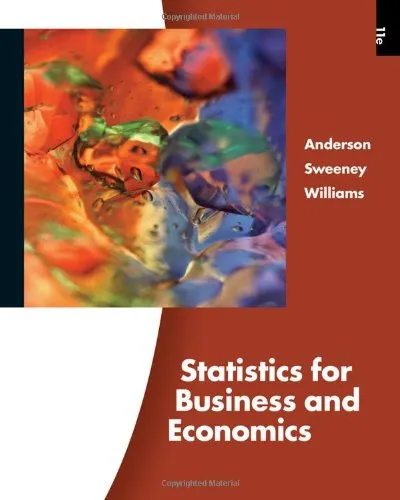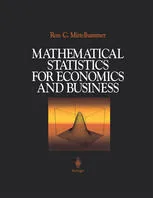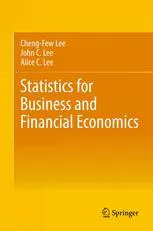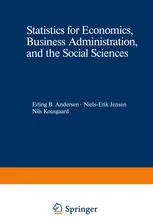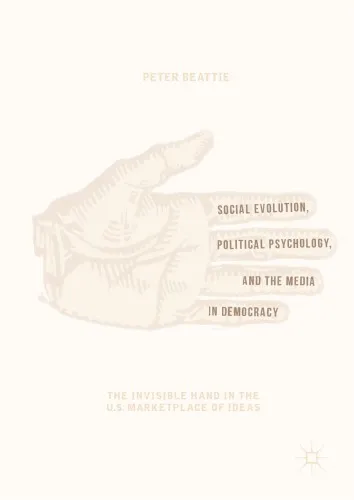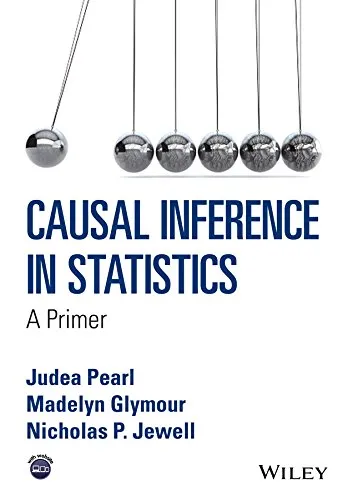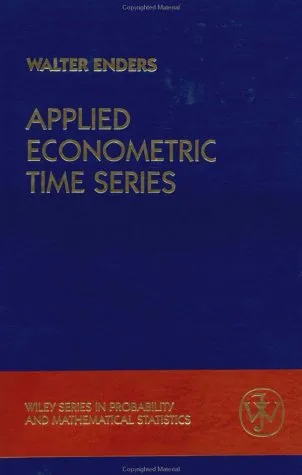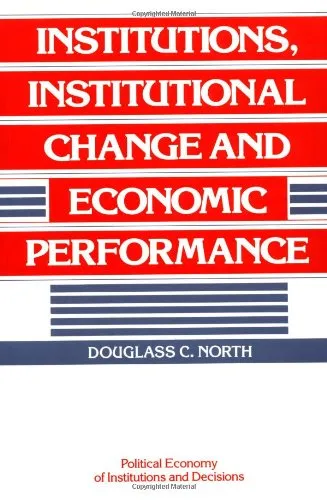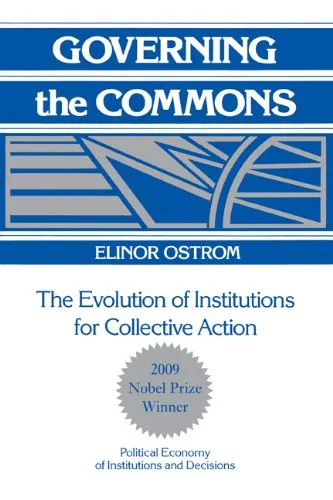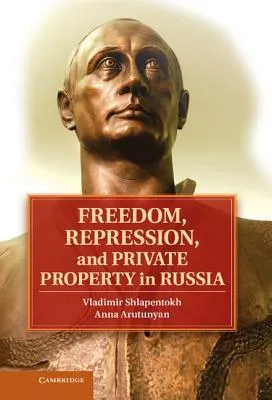Liberalization Against Democracy: The Local Politics of Economic Reform in Tunisia (Middle East Studies)
4.0
Reviews from our users

You Can Ask your questions from this book's AI after Login
Each download or ask from book AI costs 2 points. To earn more free points, please visit the Points Guide Page and complete some valuable actions.Related Refrences:
Introduction to "Liberalization Against Democracy: The Local Politics of Economic Reform in Tunisia"
Stephen J. King’s landmark book, Liberalization Against Democracy: The Local Politics of Economic Reform in Tunisia, offers a compelling exploration of the intersection between economic liberalization and political dynamics in the Middle East, with Tunisia as a central case study. The book neither romanticizes economic reforms nor dismisses them outright but instead investigates how these reforms interact with local political systems, often undermining the very prospects for democratization they are expected to foster. This scholarly yet accessible work is essential for understanding not only Tunisia's historical trajectory but also broader patterns prevalent in developing nations undergoing similar transformations.
Detailed Summary of the Book
The central premise of King’s book is that neoliberal economic reforms, often championed by international financial institutions like the International Monetary Fund (IMF) and the World Bank, do not necessarily lead to democratic outcomes. Instead, in many contexts, such reforms strengthen authoritarian regimes. By focusing on Tunisia, King examines how structural adjustment programs implemented in the 1980s and 1990s served to consolidate authoritarian rule. The reforms in question required governments to cut subsidies, privatize state-owned industries, and liberalize trade. While intended to stimulate economic efficiency, such policies often upset existing social contracts, particularly in countries like Tunisia, where the state traditionally controlled economic opportunities.
King carefully analyzes how Tunisia’s authoritarian leadership used economic liberalization to reorganize local power dynamics. Far from limiting the power of the state, structural adjustment programs became a tool for the regime to consolidate its grip on resources, co-opt local elites, and suppress dissenting voices. One of the book’s most striking insights is how economic reform policies cemented a system of patronage politics. The central government selectively allocated economic benefits to local elites, ensuring their loyalty while marginalizing actors who could challenge the status quo.
King does not stop with economic liberalization alone. He contextualizes these reforms within a broader set of international and domestic pressures, illustrating how the Tunisian case fits into global patterns. The book argues that the local political microcontext plays a decisive role in determining whether neoliberal reforms strengthen or weaken democratic institutions. Tunisia's experience highlights the paradox: although international donors aim for both economic and democratic development, their policies often achieve the opposite.
Key Takeaways
- The universal application of neoliberal economic reforms often has unintended political consequences, particularly in authoritarian states.
- Tunisia’s regime adeptly used economic liberalization to consolidate local political control rather than democratize.
- Economic reforms can exacerbate social inequality, creating fertile ground for political exclusion rather than inclusion.
- International financial institutions must consider the local political context before recommending uniform economic policy prescriptions.
- The interaction between global donors and national governments requires careful calibration to align goals of democratization and economic reform.
Famous Quotes from the Book
"Economic liberalization, far from dismantling authoritarian structures, often feeds into their persistence by creating new patterns of dependence and cooptation."
"The paradox of reform is this: the policies prescribed to foster democracy can inadvertently deepen repression when filtered through authoritarian regimes."
"Local politics is where the grand narrative of economic reform meets the lived reality of citizens. In Tunisia, this meeting revealed the limits of externally imposed models of change."
Why This Book Matters
Stephen J. King's Liberalization Against Democracy is not just a case study on Tunisia; it is a lens through which we can examine the broader relationship between economic policies and political systems in the Global South. The book is particularly relevant today as more countries in Africa, the Middle East, and beyond grapple with similar challenges. Policymakers, academics, and activists seeking to promote both development and democracy will find King’s work a sobering yet enlightening read.
Understanding why economic liberalization often fails to democratize society offers critical lessons for ongoing efforts in global governance. The insights presented in this book are urgent and essential as the international community continues to promote economic reforms in countries with varying political traditions. King’s work reminds us that there are no one-size-fits-all solutions in social and political transformation, and any intervention must factor in the intricate dance between state, society, and economy.
Free Direct Download
You Can Download this book after Login
Accessing books through legal platforms and public libraries not only supports the rights of authors and publishers but also contributes to the sustainability of reading culture. Before downloading, please take a moment to consider these options.
Find this book on other platforms:
WorldCat helps you find books in libraries worldwide.
See ratings, reviews, and discussions on Goodreads.
Find and buy rare or used books on AbeBooks.
1404
بازدید4.0
امتیاز0
نظر98%
رضایتReviews:
4.0
Based on 0 users review
Questions & Answers
Ask questions about this book or help others by answering
No questions yet. Be the first to ask!
